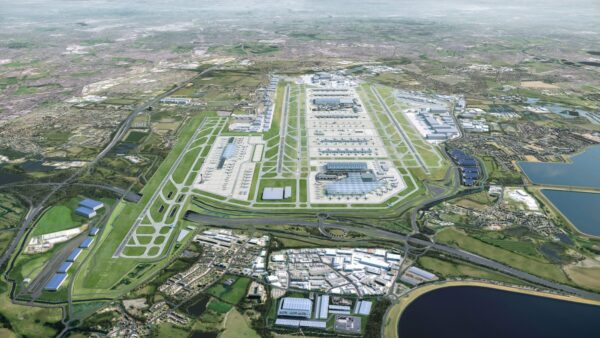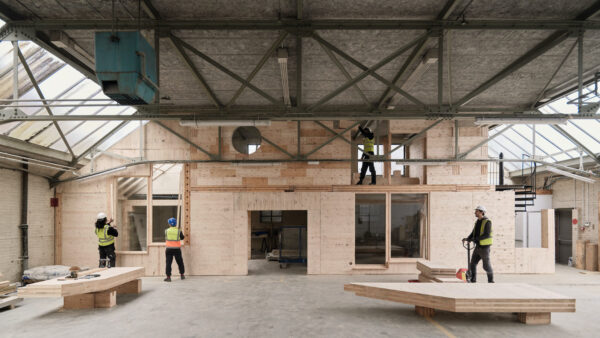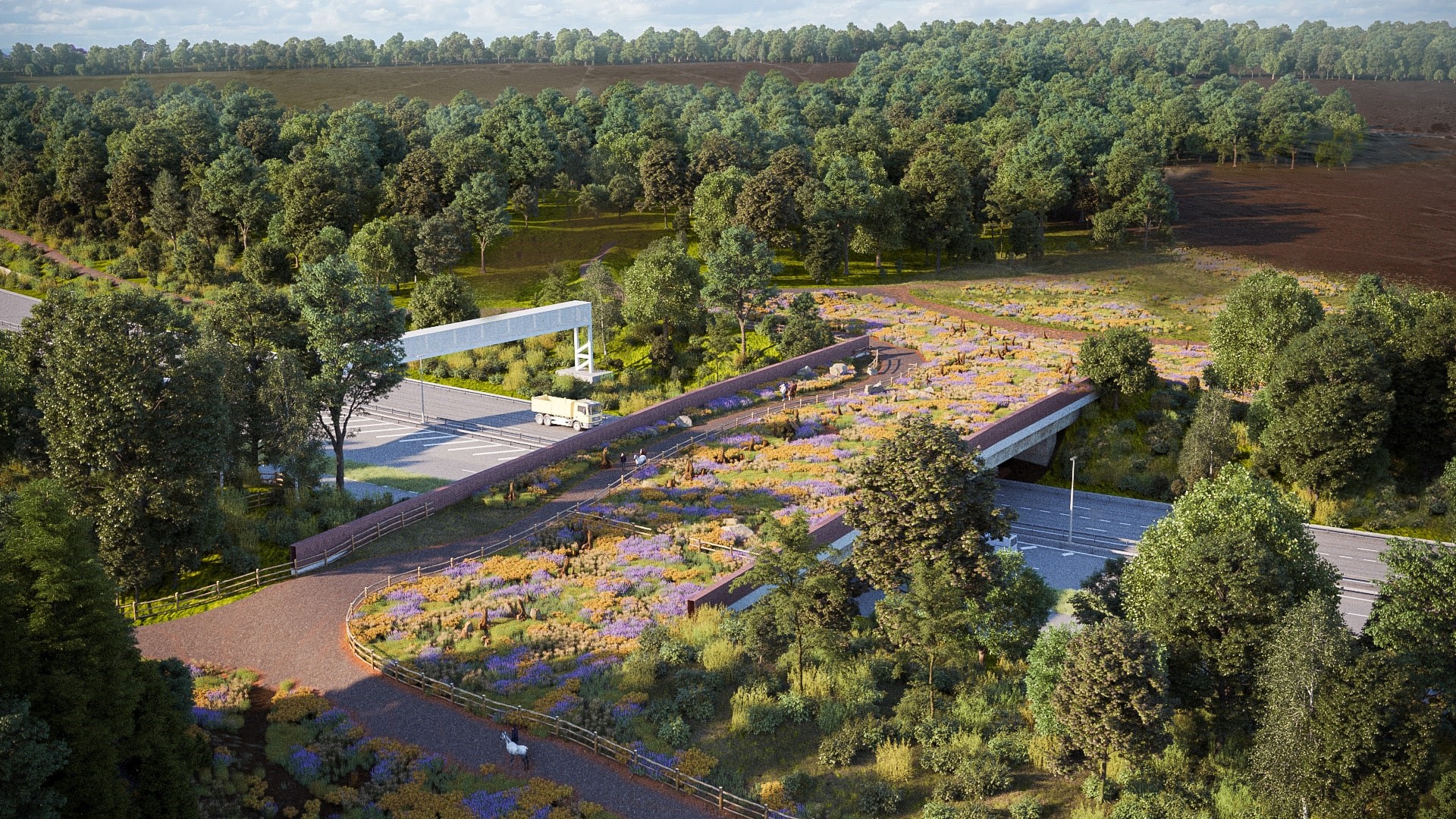
National Highways is set to double its stock of green bridges across the UK within the next two years.
The public body said there are currently only “a handful” of these wildlife-friendly structures on the country’s strategic road network.
National Highways has already constructed green bridges over the A556 near Chester and the A21 at Scotney Castle in Kent.
Costain has built a dual-deck bridge as part of the major A30 Chiverton to Carland Cross dualling project. Topsoiling work will start by the end of May to turn the bridge from grey to brown, followed by ‘green’ planting in the autumn.
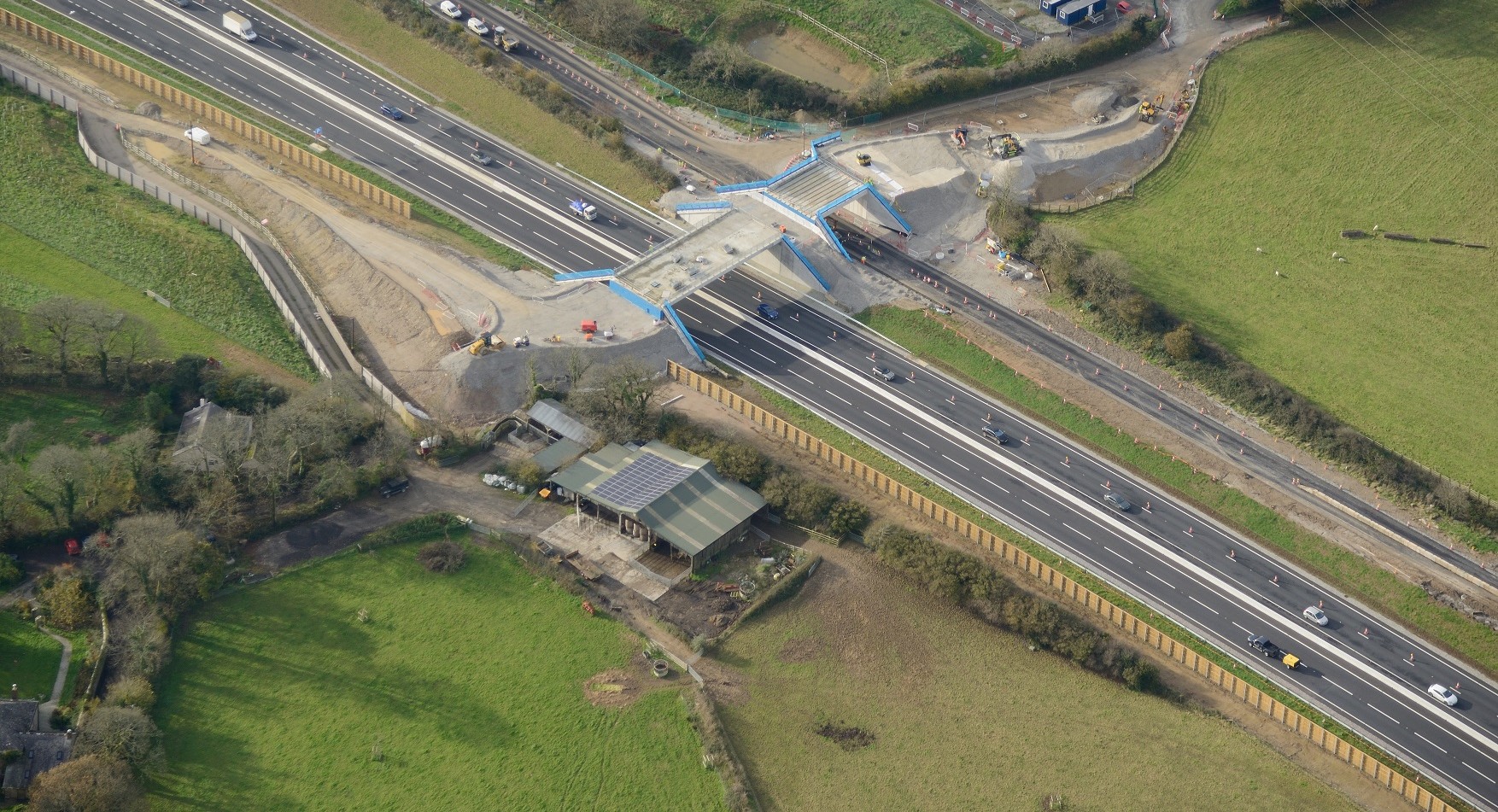
At 49.3m long and 12.5m wide, the bridge will provide a safe passage across the road for various wildlife species, including badgers, voles and other small animals, insects and birds, as well as a footpath and a bridleway for horse riders.
Reconnecting habitats
The Cockrow Bridge, part of the M25 Junction 10 scheme, will also reconnect habitats separated by the road. It has been designed and engineered to bring together restored heathland on Wisley Common and Ockham Common.
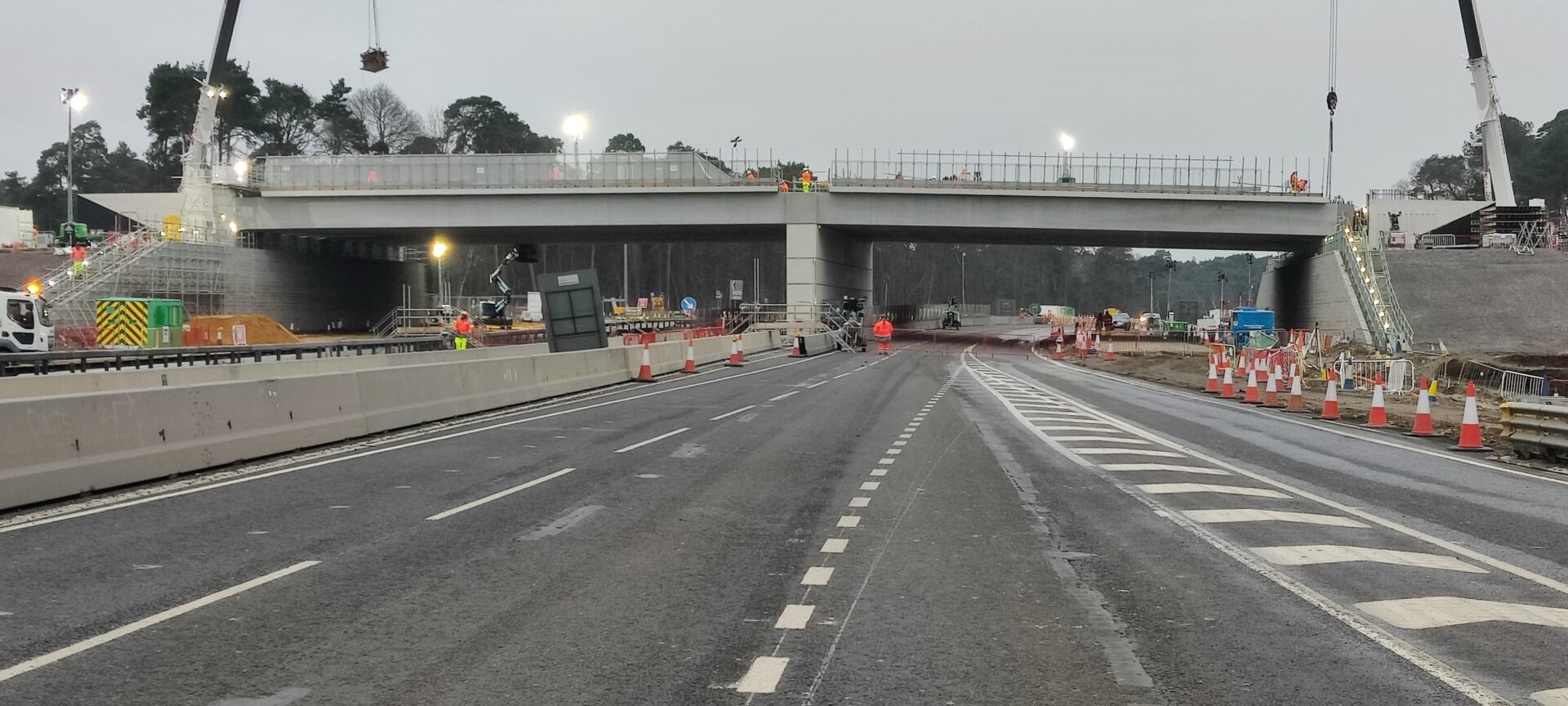
The 68m-long structure was installed in January and, as with the other bridges, will be earthed over and planted with heathland species to join it up to the surrounding habitats.
Kier will also be lifting 10 huge steel beams this summer to create the base of an environmental bridge as part of the A417 Missing Link road upgrade.
The bridge deck will follow for the Gloucestershire Way bridge, which, in the future, will serve as a multi-purpose crossing for walkers, cyclists and horse riders, along with various wildlife species.
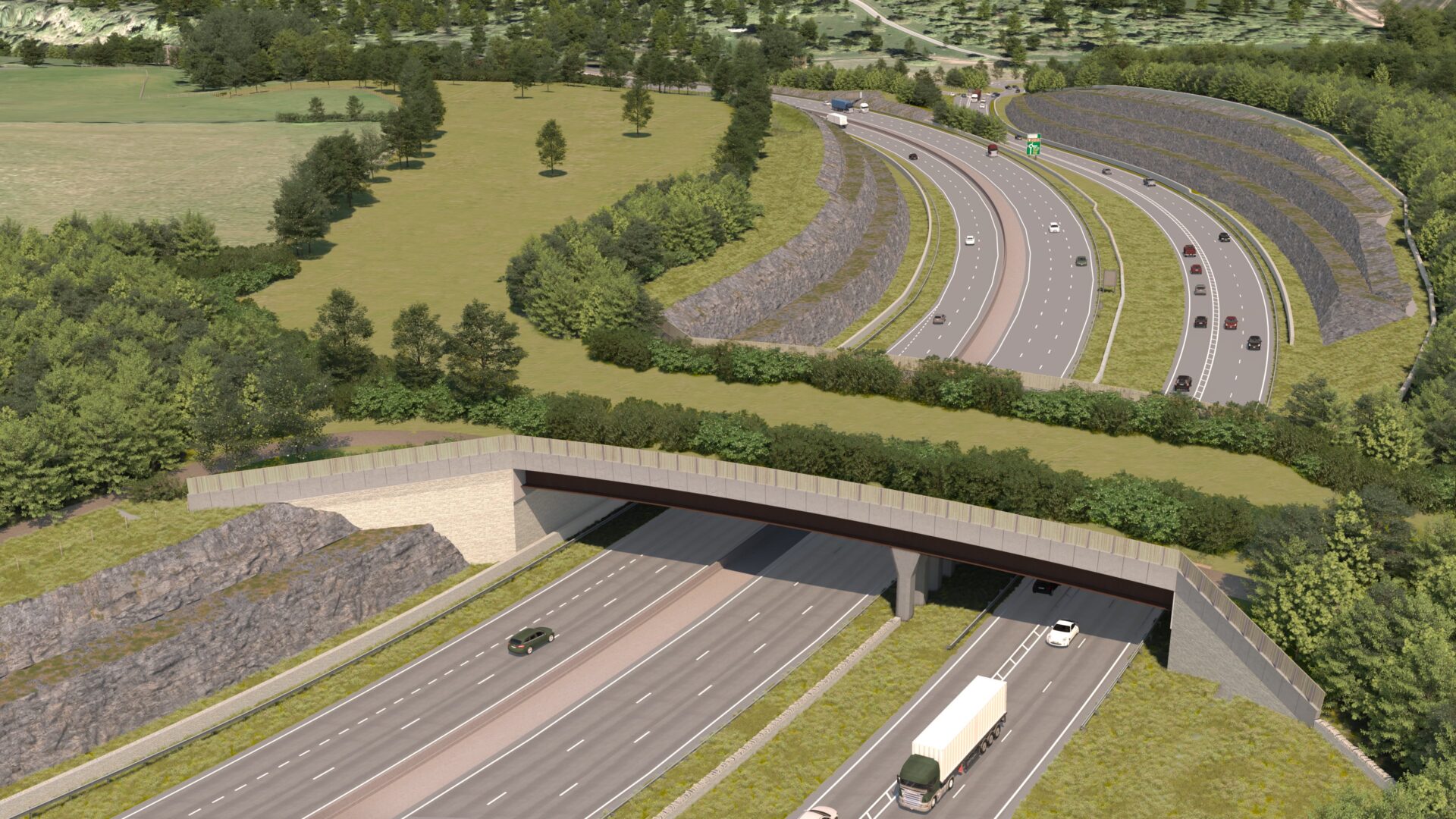
The multi-purpose bridge – 60m in length and 37m wide – will span the new dual carriageway. Planting will mirror that of the surrounding landscape, including 27m of calcareous grassland and hedgerows.
Green bridges originated in France in the 1950s and were pioneered in the late 1980s in the Netherlands, where they are also known as ‘ecoducts’.




